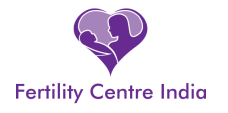The journey to parenthood is a profound one, and for many, the way might include looking for help from the domain of medical science. In-vitro fertilization (IVF) has altered conceptive medication, offering desire to couples facing infertility.In India, a country known for its advancements in healthcare, several exceptional IVF doctors have garnered recognition for their expertise, success rates, and compassionate care. This article takes a closer look at the best IVF doctors in India, featuring their accomplishments and commitments to the field.

Understanding IVF
Contents
The journey to parenthood is a deeply personal and cherished aspiration for many individuals and couples. In the realm of reproductive medicine, various techniques have emerged to fulfill this dream, and one of the most transformative among them is In-Vitro Fertilization (IVF). This groundbreaking procedure has revolutionized the way we approach infertility, offering hope to those who have faced challenges in conceiving through traditional means.
What is IVF?
In-Vitro Fertilization, commonly known as IVF, is a fertility treatment that includes a progression of perplexing operations pointed toward helping people or couples in accomplishing pregnancy. The expression “in-vitro” means “in glass,” and in this specific circumstance, it alludes to the research facility setting where the process happens. IVF incorporates a few key stages:
- Ovulation Stimulation: The first step of IVF involves stimulating the ovaries to produce multiple eggs, as opposed to the usual one egg that is naturally released each menstrual cycle. This is achieved through the administration of fertility medications, allowing for a greater number of eggs to mature.
- Egg Retrieval: When the eggs have developed, a minor surgery called egg recovery is performed. Utilizing particular ultrasound direction, a meager needle is embedded through the vaginal wall to gather the eggs from the ovaries. This step is normally directed under sedation to limit inconvenience.
- Sperm Collection: Simultaneously, a sperm sample is collected from either the male accomplice or a sperm contributor. The gathered sperm is then ready to guarantee its ideal quality and ability to fertilize the eggs.
- Fertilization: In the research facility, the recovered eggs and arranged sperm are combined in a controlled climate. Fertilization happens as the sperm enters the egg, bringing about the arrangement of incipient embryos.
- Embryo Culture: The embryos are carefully monitored and cultured in a specialized incubator for a few days. During this time, embryologists assess their development and quality.
- Embryo Transfer: Once the embryos have reached a suitable stage of development, one or more are selected for transfer to the woman’s uterus. This is a minimally invasive procedure performed using a thin catheter, guided by ultrasound. The goal is for the embryo to implant in the uterine lining, leading to pregnancy.
- Implantation and Pregnancy: If implantation is successful, the embryo attaches to the uterine lining and pregnancy begins. Subsequent monitoring and care are provided to ensure the well-being of both the mother and the developing fetus.
Why IVF?
IVF is a versatile technique that addresses a range of fertility challenges, including:
- Tubal Factor Infertility: When the fallopian tubes are obstructed or harmed, keeping the egg and sperm from meeting normally.
- Male Factor Infertility: At the point when the male accomplice has a low sperm count, unfortunate sperm motility, or different issues influencing sperm quality.
- Unexplained Infertility: In situations where the reason for infertility not entirely set in stone through traditional demonstrative strategies.
- Age-related Infertility: As a woman’s age increases, her ovarian hold reduces, making it more challenging to normally imagine.
- Genetic Disorders: Couples with a high gamble of passing on hereditary problems can pick preimplantation genetic testing (PGT) as a component of the IVF process.
- Same-Sex Couples and Single Parents: IVF gives choices to people and couples who require donor eggs, donor sperm, or gestational carriers.
In Addition, In-Vitro Fertilization has shattered barriers and provided a ray of hope for individuals and couples facing infertility. Its success stories are testaments to the force of logical development, medical expertise, and human assurance. While IVF might include complex strategies, it is driven by a straightforward and strong inspiration: to make families and give pleasure to the individuals who have yearned for the experience of life as a parent. As medical advancements continue and our comprehension of regenerative medication develops, IVF stays an image of the potential outcomes that anticipate the individuals who leave on the way to being a parent.
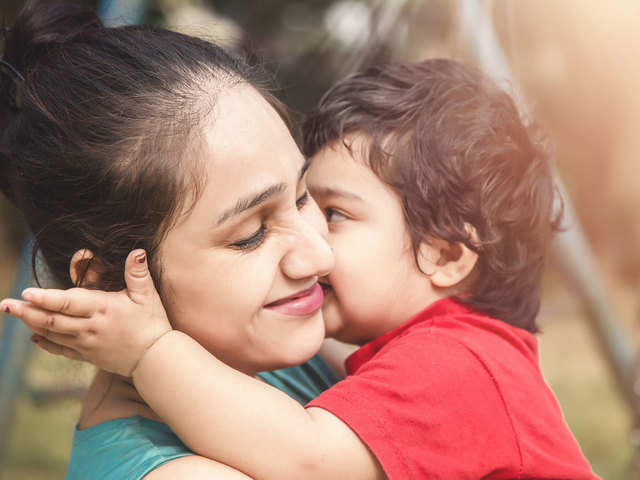
Factors to Consider While Choosing an IVF Doctor
The decision to undergo in-vitro fertilization (IVF) is a significant step on the path to parenthood. Choosing the right IVF doctor] is crucial, as their expertise, approach, and guidance can greatly influence the success of the treatment. Here are some important factors to consider when selecting an IVF doctor:
- Expertise and Qualifications: Look for a doctor who specializes in reproductive medicine and has extensive experience in performing IVF procedures. Check their qualifications, certifications, and affiliations with reputable fertility organizations.
- Success Rates: Inquire about the clinic’s success rates with IVF treatments. While success rates can vary due to individual factors, a clinic with consistently high success rates may indicate a skilled and experienced team.
- Reputation and Reviews: Research the doctor’s reputation within the medical community and among patients. Online reviews and testimonials from previous patients can provide insights into the doctor’s approach, patient care, and overall satisfaction.
- Personalized Care: Choose a doctor who takes a personalized approach to patient care. IVF treatment plans should be tailored to individual needs and medical histories, rather than following a one-size-fits-all approach.
- Communication and Transparency: Effective communication is vital throughout the IVF journey. The doctor should be transparent about the treatment process, potential outcomes, risks, and costs. They should be open to answering your questions and addressing any concerns you may have.
- Range of Services: Consider a doctor who offers a comprehensive range of fertility treatments beyond IVF. This indicates their expertise in various aspects of reproductive medicine and their ability to recommend the most suitable treatment for your situation.
- Counseling and Emotional Support: Infertility treatment can sincerely burden. A compassionate doctor will offer close to home help and deal counseling services to assist you with exploring the emotional challenges that might emerge during the process.
- Accessibility and Location: Choose a clinic that is strategically placed and effectively open. IVF treatment includes various arrangements, and having a center that is nearby can diminish pressure and travel time.
- State-of-the-Art Technology: An IVF doctor who uses progressed conceptive innovations and current offices might upgrade the possibilities of a successful result. Ask about the clinic’s technology and equipment.
- Cost and Financing Options: IVF treatment can be costly, so it’s critical to talk about costs forthright. A legitimate center will give straightforward data about charges and may offer supporting choices or bundles to make the treatment more affordable.
- Ethics and Values: Guarantee that the doctor and clinic adhere to ethical practices and rules in fertility treatment. Ethical contemplations might incorporate rules for undeveloped embryo determination, numerous pregnancies, and the treatment of donors and surrogates.
- Second Opinion: Make it a point to a subsequent assessment on the off chance that you feel a little unsure or vulnerabilities about a specific doctor’s suggestions or treatment plan. A subsequent assessment can give extra viewpoint and assist you with settling on an educated choice.
Overall, Choosing an IVF doctor is a decision that should be made after careful consideration of various factors. The doctor’s expertise, success rates, communication style, and patient-centered approach all play crucial roles in your IVF journey. By taking the time to research and evaluate potential doctors, you can increase your chances of finding a skilled and compassionate professional who will guide you toward the dream of parenthood.
Top 6 Best IVF Doctor in India
Dr. Neha Gupta

Dr. Neha Gupta, a Senior Consultant Obstetrician & Gynecologist, boasts 14 years of specialized experience. She’s affiliated with esteemed institutions like Artemis Hospital and Fortis Memorial Research Institute in Gurgaon. Educated at premier medical colleges, she’s a Diplomate of National Board Examination in Obstetrics and Gynecology, a member of the Royal College of Obstetricians and Gynecologists, and holds a Diploma in Gyne Endoscopy from Kiel University, Germany. Dr. Gupta excels in high-risk pregnancy care, gynae endoscopic surgery, and infertility treatment. She’s affiliated with leading medical societies and passionately educates patients through her YouTube channel and authored guidebook “Tender: The Pregnancy Guide.”
Dr. Shivani Sachdev Gour
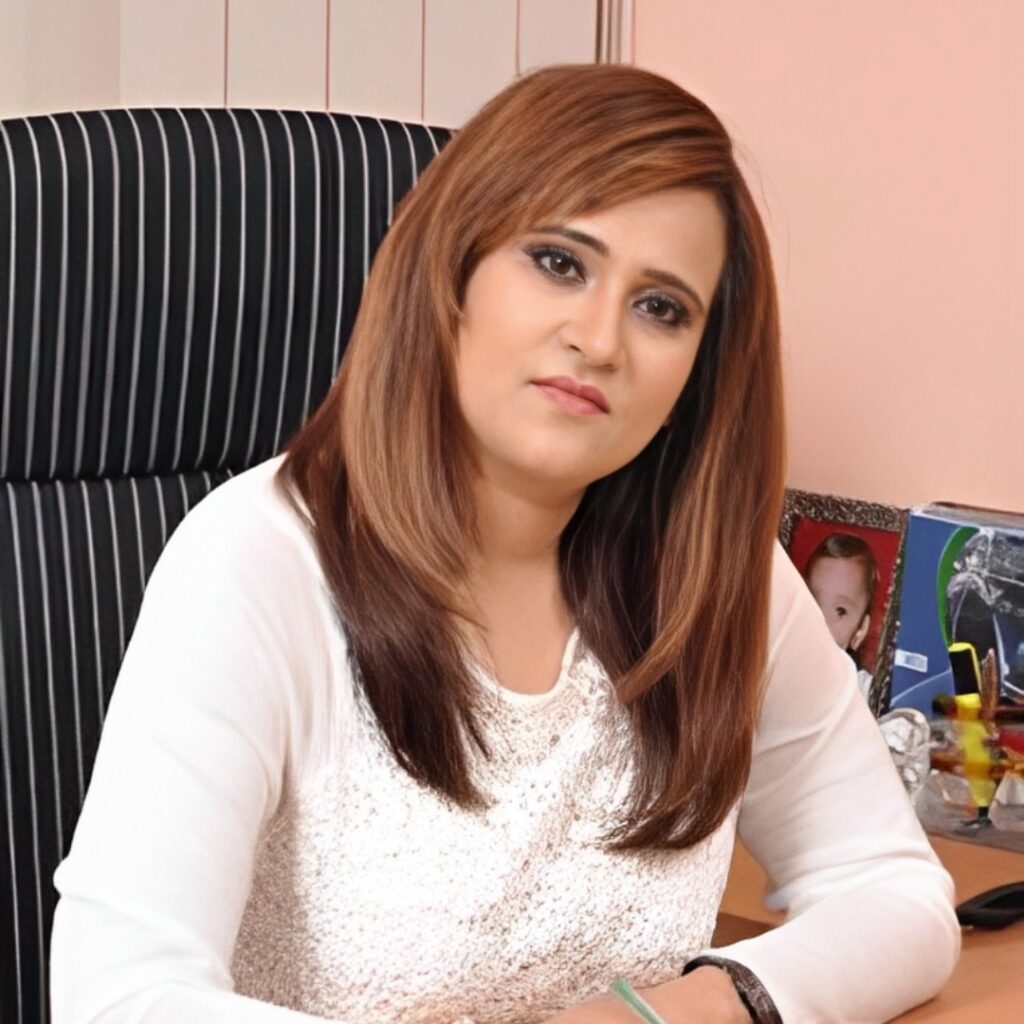
With over 25 years of experience in the field, Dr. Shivani Sachdev Gour stands as a beacon of expertise in Obstetrics, Gynecology, and Infertility. As the founder and director of SCI Healthcare Hospital and Multispecialty Centre, she has pioneered advancements in fertility treatment. With a robust academic background including MBBS, MD, and DNB, Dr. Sachdev Gour’s journey led her to become a Consultant Fertility Specialist. Her remarkable contributions span across continents, from the United Kingdom’s prestigious Hammersmith Hospital to India’s forefront of reproductive medicine. Through her dedication, countless couples have embraced parenthood, making her one of the finest IVF doctors in India.
Dr. Nandita Palshetkar
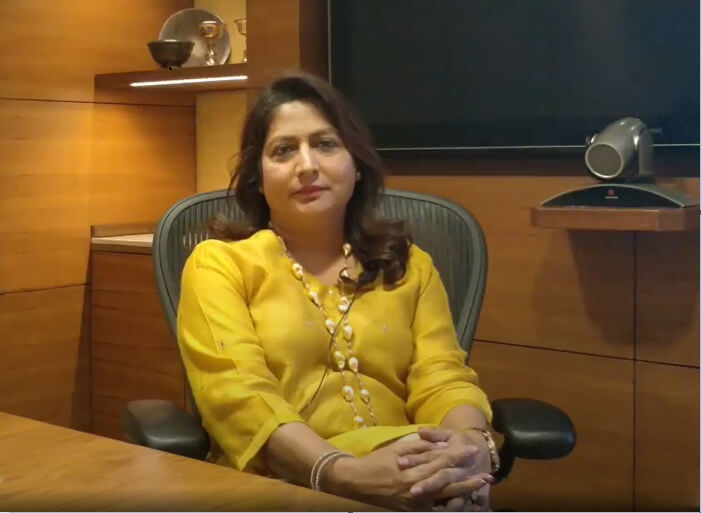
Dr. Nandita Palshetkar stands as a pioneering force in IVF treatment across India, with a significant impact on Mumbai’s medical landscape. Her expertise in Assisted Reproductive Technologies has led to the realization of parenthood for over 25,000 aspiring parents. With an impressive IVF success rate ranging from 35% to 45% in women under 35, Dr. Palshetkar’s contributions have been transformative. In a world where infertility challenges abound, her dedication to helping couples achieve the joy of parenthood through IVF shines as a beacon of hope, offering a promising solution to those in need.
Dr. Goral Gandhi

Goral Gandhi, the Founder & Scientific Director of Global Fertility Solution, brings a profound understanding of infertility to her work. With a career spanning over two decades, she has established herself as a pioneer in the field of Assisted Reproductive Technology (ART). Goral’s journey began in 1996, under the guidance of Dr. Sadhana Desai. Her expertise extends from embryology to cryopreservation, with a particular focus on optimizing protocols. She is a recognized global authority on cryopreservation and vitrification, having trained hundreds of embryologists worldwide. Her leadership and innovation have led to exceptional success rates, especially for advanced maternal age and egg freezing cases. Goral is not only a leading expert but also a devoted mother and avid traveler.
Dr. Hrishikesh Pai

Dr. Hrishikesh Pai, MD, FCPS, FICOG, MSc, stands as a prominent figure in India’s gynecological landscape. As a distinguished gynecologist, he has held prestigious positions, including Past Secretary General of FOGSI, a premier organization of over 33,000 Gynaecologists. A pioneer in Infertility and IVF since 1991, he directs the Bloom IVF Group with eight centers across India. Dr. Pai’s innovative contributions, from introducing advanced techniques like assisted laser hatching to his role as President of ISAR, highlight his expertise. He has significantly influenced policy-making, academic research, and medical advancements, making him a transformative force in women’s and child health.
Dr. Richa Jagtap

Dr. Richa Jagtap, a renowned infertility specialist based in Mumbai, stands as a beacon of excellence. With an impressive academic journey, including securing an All India PMT Seat and excelling in her post-graduation from Mumbai University, she’s a certified expert in Reproductive Medicine and Endocrinology. Her vision focuses on introducing international standards, transparency, and holistic management to India’s Reproductive Medicine. Dr. Jagtap’s commitment spans fertility medicine, genetic studies, and fertility preservation counseling. A member of prestigious associations, she’s also a blogger, traveler, and advocate for women’s rights. Driven by a mission, she elevates fertility care through innovation and patient empowerment.
Content Table: Best IVF Doctor in India
| Doctor’s Name | Achievements | Success Rate (%) | Treatment Offerings | Treatment Cost (Approx.) |
|---|---|---|---|---|
| Dr. Neha Gupta | High success in complex fertility cases | 70-80% | IVF, ICSI, IUI, Egg Freezing | ₹1,50,000 – ₹2,00,000 |
| Dr. Shivani Sachdev Gour | Founder of SCI Healthcare, Recognized Globally | 65-75% | IVF, Surrogacy, Egg Donation, PGS/PGD | ₹2,00,000 – ₹3,00,000 |
| Dr. Nandita Palshetkar | Recipient of Numerous Awards | 75-85% | IVF, ICSI, Donor Egg IVF, FET | ₹2,50,000 – ₹3,50,000 |
| Dr. Goral Gandhi | Pioneered Holistic Fertility Care | 70-80% | IVF, IUI, Egg Freezing, Surrogacy | ₹1,80,000 – ₹2,50,000 |
| Dr. Hrishikesh Pai | Established Several Fertility Centers | 80-90% | IVF, ICSI, FET, Egg Donation | ₹2,20,000 – ₹3,00,000 |
| Dr. Richa Jagtap | Expertise in Male and Female Infertility | 65-75% | IVF, IUI, Fertility Preservation, PGS | ₹1,80,000 – ₹2,50,000 |
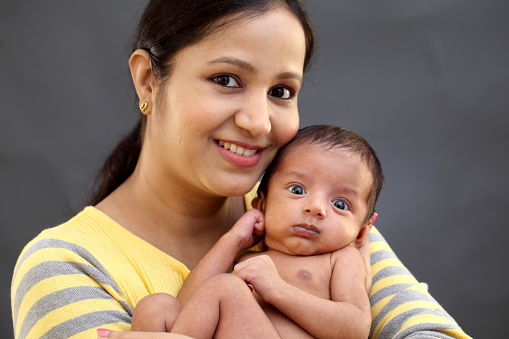
Comprehensive Services and Patient Care: Enhancing the Fertility Treatment Experience
In the realm of healthcare, the integration of comprehensive services and exceptional patient care has become a hallmark of quality. This principle holds true across various medical specialties, including fertility treatment. For couples and individuals navigating the challenges of infertility, access to comprehensive services and compassionate patient care can make a world of difference. In this article, we delve into the significance of comprehensive services and patient care in the context of fertility treatment, exploring how they contribute to improved outcomes and an overall positive experience.
The Importance of Comprehensive Services
Comprehensive services in fertility treatment india encompass a wide range of offerings that address the various aspects of infertility diagnosis, treatment, and support. From initial consultations and diagnostic tests to advanced reproductive technologies and psychological counseling, these services are designed to provide a holistic approach to fertility care. Couples and individuals benefit from having all their needs met under one roof, streamlining their journey and reducing the stress associated with navigating multiple healthcare providers.
- Personalized Treatment Plans: Comprehensive fertility centers tailor treatment plans to the unique needs of each patient. Medical histories, diagnostic results, and personal preferences are taken into account to design an individualized roadmap for achieving pregnancy. This approach increases the likelihood of success by addressing specific challenges and optimizing treatment strategies.
- Advanced Reproductive Technologies: Leading fertility centers offer a spectrum of advanced reproductive technologies, from in-vitro fertilization (IVF) and intracytoplasmic sperm injection (ICSI) to preimplantation genetic testing (PGT). Having access to a range of cutting-edge treatments ensures that patients receive the most suitable intervention for their circumstances.
- Multidisciplinary Collaboration: Comprehensive services often involve collaboration between fertility specialists, reproductive endocrinologists, embryologists, geneticists, counselors, and other healthcare professionals. This multidisciplinary approach combines diverse expertise to provide well-rounded care.
- Emotional and Psychological Support: Infertility can take an emotional toll on individuals and couples. Comprehensive fertility centers recognize this and offer emotional and psychological support services, including counseling and support groups. Addressing the emotional aspect of fertility enhances the overall well-being of patients.
- Nutrition and Lifestyle Guidance: Comprehensive care extends beyond medical treatments to include guidance on nutrition, exercise, and lifestyle adjustments that can positively impact fertility. This holistic approach considers the role of overall health in the fertility journey.
The Significance of Patient Care
Exceptional patient care forms the bedrock of successful fertility treatment. The emotional and physical aspects of infertility demand a sensitive and empathetic approach, ensuring that patients feel supported, understood, and valued throughout their journey.
- Clear Communication: Effective patient care begins with clear and open correspondence. Fertility specialists who carve out opportunity to make sense of methods, choices, and potential results enable patients to settle on informed choices.
- Supportive Environment: Creating a welcoming and supportive environment cultivates trust among patients and medical care suppliers. Patients ought to feel open to examining their interests and posing inquiries without a second thought.
- Individual Attention: Every patient is unique, and customized patient consideration recognizes this reality. Fertility centers that proposition individualized consideration exhibit their obligation to seeing every patient’s needs and aspirations.
- Addressing Emotional Needs: Infertility can bring forth a range of emotions, including uneasiness, bitterness, and disappointment. Fertility centers who recognize and address these feelings assist patients with adapting to the difficulties all the more really.
- Continuity of Care: Continuity of care ensures that patients have a steady resource all through their fertility journey. This cultivates a feeling of commonality and trust, which is especially significant during what can be a weak time.
Overall, Comprehensive services and patient care are the cornerstones of successful fertility treatment. By offering a range of services that address the physical, emotional, and psychological dimensions of infertility, fertility centers provide patients with a well-rounded and supportive experience. With a focus on individual needs, open communication, and advanced medical technologies, these centers empower individuals and couples to navigate the complexities of fertility with confidence and hope. As the field continues to evolve, the integration of comprehensive services and compassionate patient care will undoubtedly remain integral to achieving positive outcomes and fostering an environment of trust and understanding.

Conclusion
The journey to parenthood through IVF is both a medical and emotional voyage. The best IVF doctors in India embody a unique combination of expertise, compassion, innovation, and dedication. As pioneers, leaders, and visionaries, they have changed the existences of incalculable couples, making the dream of life as a parent a reality. Through their exceptional endeavors, these specialists keep on forming the scene of conceptive medicine in India, offering hope to those who seek it most.
Frequently Asked Questions (FAQ)
1. What is IVF, and why might I need the services of the best IVF doctor in India?
In Vitro Fertilization (IVF) is an assisted reproductive technology that helps couples struggling with infertility conceive a child. The best IVF doctors in India are highly skilled specialists who offer expertise in diagnosing fertility issues, conducting IVF procedures, and guiding couples through the journey to parenthood.
2. Who are some of the best IVF doctors in India?
Some renowned IVF doctors in India include Dr. Firuza Parikh, Dr. Nandita P. Palshetkar, Dr. Hrishikesh Pai, Dr. Aniruddha Malpani, Dr. Rajeev Agarwal, Dr. Richa Katiyar, Dr. Narmada Prasad Gupta, and Dr. Indira Hinduja.
3. What qualifications and experience should I look for in an IVF doctor?
Look for IVF doctors with a background in obstetrics and gynecology, specialization in reproductive medicine, and a membership or fellowship in reputable infertility organizations. Experience and a track record of successful IVF procedures are also crucial.
4. How do I choose the best IVF doctor for my needs?
Choose a doctor with a proven track record of success, positive patient reviews, a patient-centric approach, a comprehensive range of fertility treatments, and the ability to communicate effectively with you.
5. What is the success rate of IVF procedures performed by the best doctors in India?
IVF success rates can vary based on factors such as age, medical history, and underlying fertility issues. The best IVF doctors typically have success rates that are above the national average due to their expertise and advanced technologies.
6. How do I schedule a consultation with one of the best IVF doctors in India?
Most IVF doctors have clinics where you can schedule an initial consultation. Contact the clinic through their website or phone number to book an appointment.
7. What does the IVF process involve, and how long does it take?
The IVF process involves ovarian stimulation, egg retrieval, fertilization in a lab, embryo culture, and embryo transfer. The timeline varies, but it generally takes around 4-6 weeks from ovarian stimulation to embryo transfer.
8. What factors affect the cost of IVF treatments by the best doctors in India?
The cost of IVF treatments can vary based on factors like the clinic’s location, the doctor’s reputation, the type of IVF procedure, medications, and any additional services required.
Read Also:
- Egg Donor Agencies in Mumbai: Helping You Fulfill Your Parenthood Dreams
- Surrogacy in India: A Comprehensive Guide to Legal, Process, and Cost
- Best IVF Doctor in Mumbai: Expert Fertility Specialist for Successful Family Planning
- What is the ICSI treatment cost in Mumbai?
- How much does IUI treatment cost in delhi?
